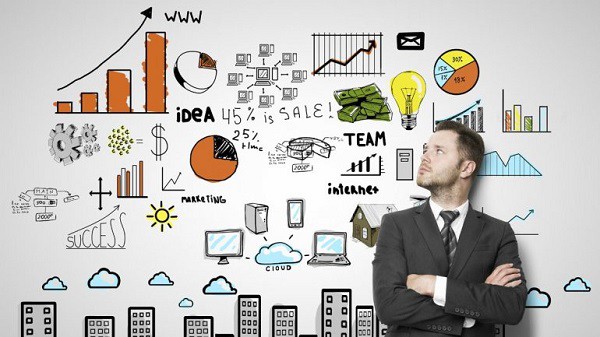
Innovation is the key for the future of our business. Without innovation, we can hardly survive in the complex environment in which we are immersed. One of the fields in which we can apply innovation is what we call eco-innovation. In this sense, we talk about all forms of innovation, both technological and non-technological, that allow creating business opportunities while benefiting the environment. By means of prevention, reducing the impact on the deterioration of the environment or allowing optimization in the use of resources.
Without a doubt, eco-innovation has a very direct relationship with our way of producing, consuming and using natural resources.
New challenges that require great solutions
Climate change is a matter of principal importance, which is increasingly focusing efforts and resources. It is no secret that our planet faces serious environmental problems and we need to find imaginative solutions if we want to maintain our standard of living while avoiding the deterioration of our planet. As many times I said, maybe there may be a plan B for many things, but for the planet there is no plan B, it is necessary to preserve it for future generations.
In this context, ecological or environmental innovation is a tool that can help companies to find and develop sustainable solutions that optimize resources and reduce the negative effects on the environment of our economy, increasingly globalized, achieving a sustainable economic development.
Are companies innovative in this regard?
Despite the advantages of eco-innovation for companies, we need to make a greater effort in this area, as we can see great differences between countries and sectors and many gaps still need to be filled.
The concept of “responsible innovation” clearly benefits companies and society. Perhaps this is the first point that must be internalized by both, companies and people. The second is that innovation is not only a matter of large companies, but also SMEs and entrepreneurs.
In summary, whatever company, whatever sector, and regardless from the size of it, all have the capacity to add its grain of sand in solving this immense challenge we have.
3 examples of eco-innovation in different sectors
Climate change, dependence on fossil fuels, limited access to basic resources or environmental health problems are some of the challenges that arise when we incorporate sustainability into business strategy, in all its operations.
As sometimes an example is like an image, worth a thousand words, here are some examples of environmental innovation in various sectors; some of them are really ingenious and interesting:
Trains that work with liquefied natural gas
In 2015, Renfe implemented in its metric width network in Leon and Asturias a railway project powered by Liquid Natural Gas (LNG).
It is a pilot project that tried to analyze the feasibility of adapting the railway convoys to operate with LNG.
The results were promising for the industry: a positive economic impact that led to a reduction in operating costs, since this fuel has a lower cost than diesel fuel; a clear reduction in pollution and a more efficient use of natural resources (reduction of greenhouse gas emissions and noise pollution).
Increasing the use of rail transport, especially for merchandise, is an element that needs to be incorporated and if we do so, using clean energy, even better. The problem is that this initiative did not have any kind of continuity.
Use of malt shell to create a biomaterial to recover bone grafts and dental implants
Mahou San Miguel has found a way to optimize the management of by-products (in this case, the shell of malt) in the production process, identifying new applications for the benefit of society.
The company found a new destination for the recovery of bagasse, a residue of the brewing process.
It turns out that this residue has the main components present in bone mass. Thus, if modified, it can be used as a support for the coating of prostheses, dental implants and bone grafts.
Biofuels from fats and oils used at home
Since 2013, Cepsa, works on a new biofuel model. This biofuel is obtained from household fats and oils that are used, with molecules equal to those contained in conventional diesel. The big difference is that this new fuel is 100% renewable.
The production of this biofuel offers very positive effects for the environment. Not only is achieved a 100% renewable product, but it is also achieved through the reuse of household waste.
The development of products and processes that contribute to the sustainable development, applying commercial strategies to generate, directly or indirectly, benefits or ecological improvements, is the key in all sectors. However, its importance and need is accentuated when we speak of the logistics sector because of its complexity.
If you are interested in this topic, eco-innovation in the logistics sector, I speak about it in more detail in an article that I have written for the newspaper El Vigía. I invite you to read it:
http://elvigia.com/eco-innovacion-en-el-sector-logistico/
And, as always, your comments are welcome.


